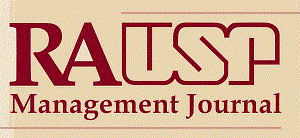Abstract
The statement that there are laws that are simply "unenforceable" is quite common in Brazil. This study aims to analyze how incentives contribute to the enforcement of formal rules. The laws chosen in this study are: land use and conservation law and agrochemicals law, focused on the storage and return of containers. The theoretical framework is based on transaction and measurement costs, and property rights. Five propositions were developed for this study related to the incentives for the enforcement of formal rules, namely: the alignment of the formal rule with the social norms; the influence of private interest; the influence of the State's interest; monitoring costs; and adoption costs to formal norms. For the empirical part, we opted for the multiple case study method, contemplated by analyses of descriptive statistics. It is worth noting that a cut out was made in relation to the agricultural crops and regions selected. The results support four of the five propositions of this study. The exception was due to the effect of the cost to adopt the rule. It was concluded that rules addressing assets of common ownership are characterized by a more complex enforcement mechanism, since it does not involve a purely economic issue. Actions that raise the awareness on these rules and the awareness regarding the scope of the subject are important so that the social rules, which do not change rapidly, can be in line with the formal rule, thus promoting its enforcement.
Keywords
Law enforcement; Unenforceable law; Agribusiness rules
